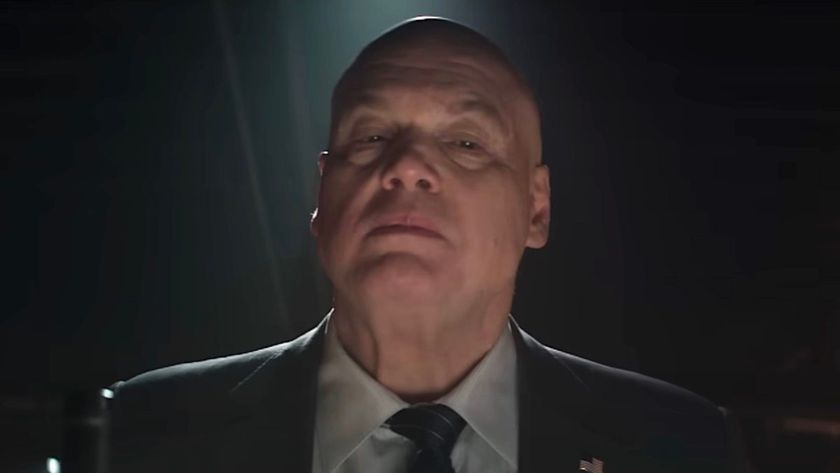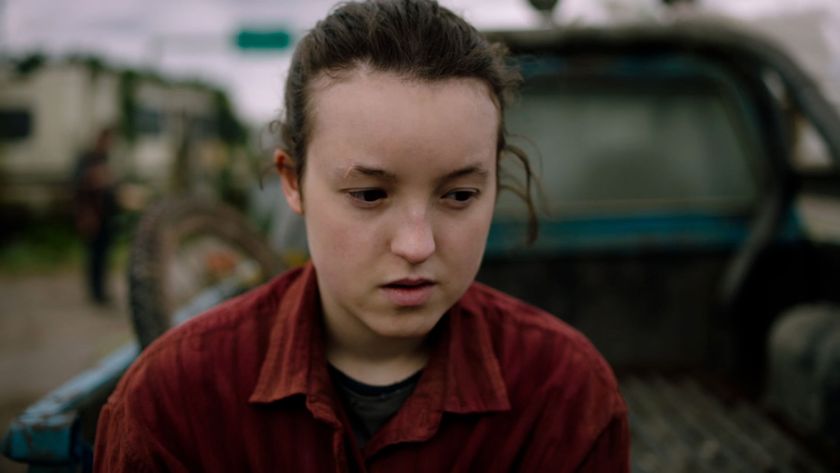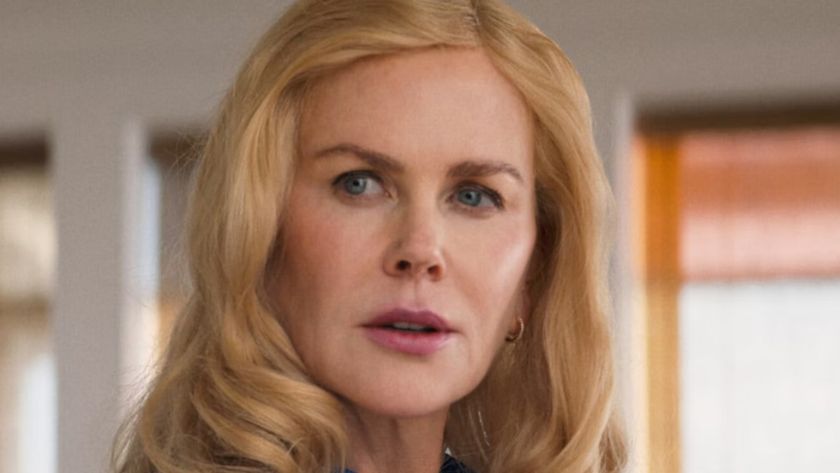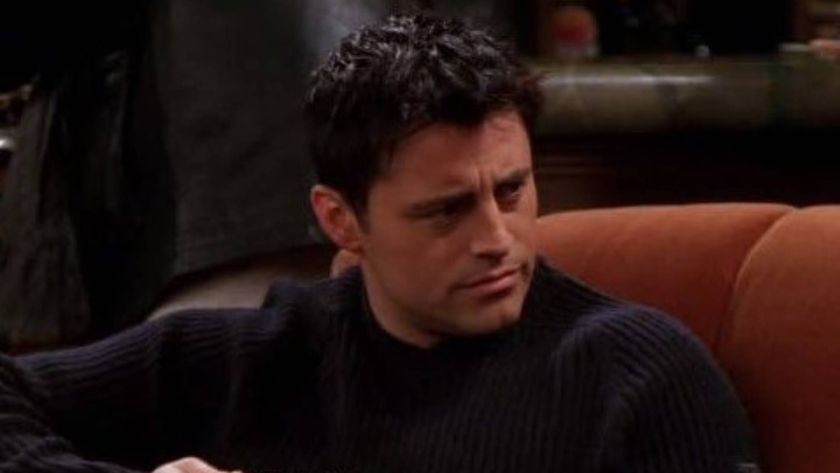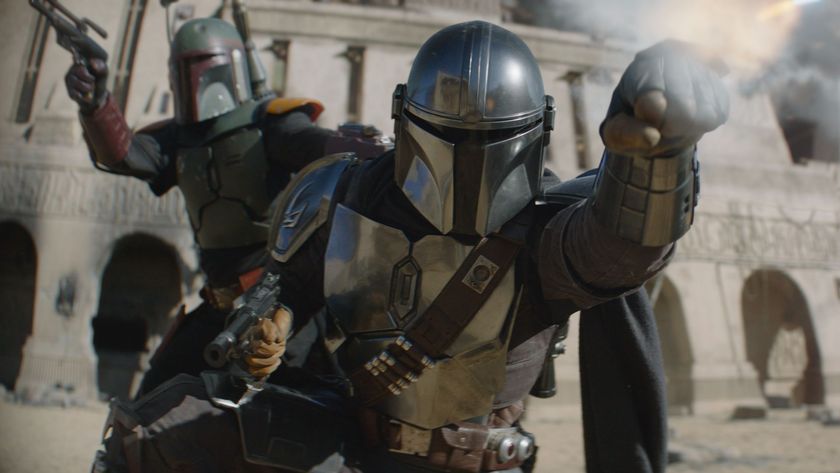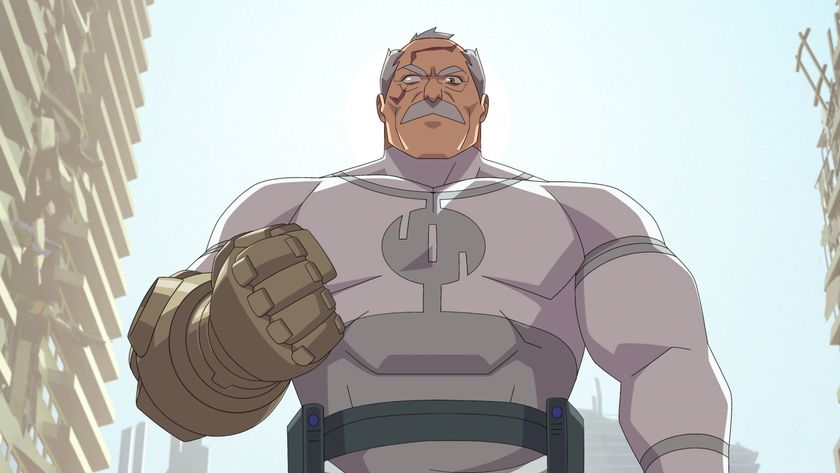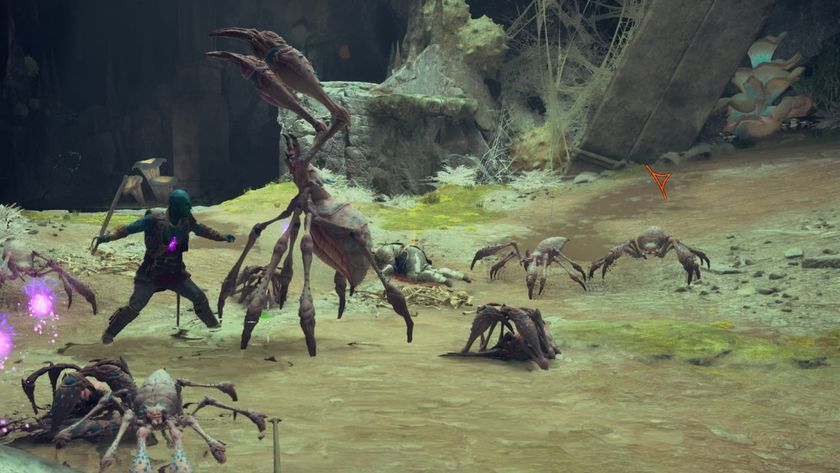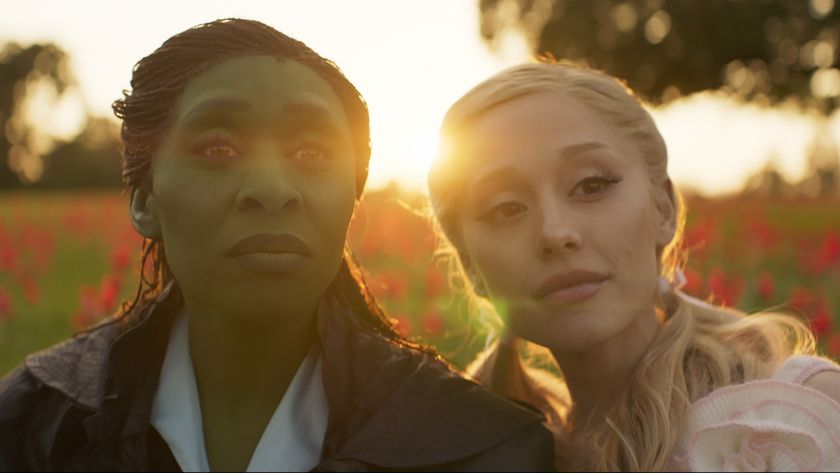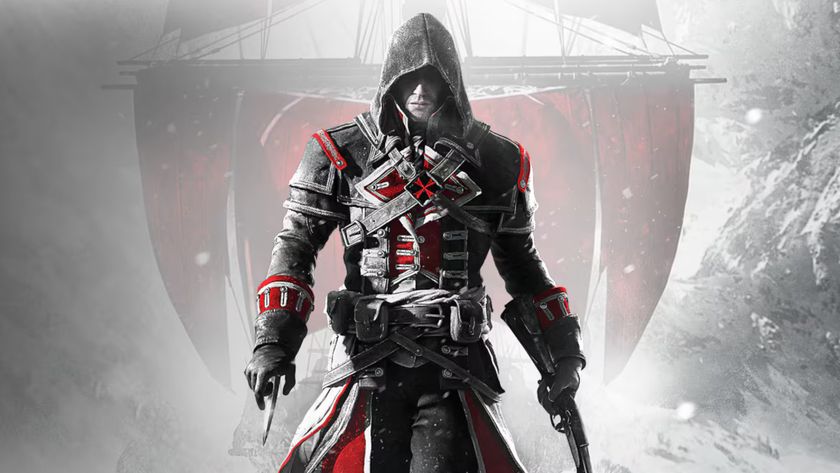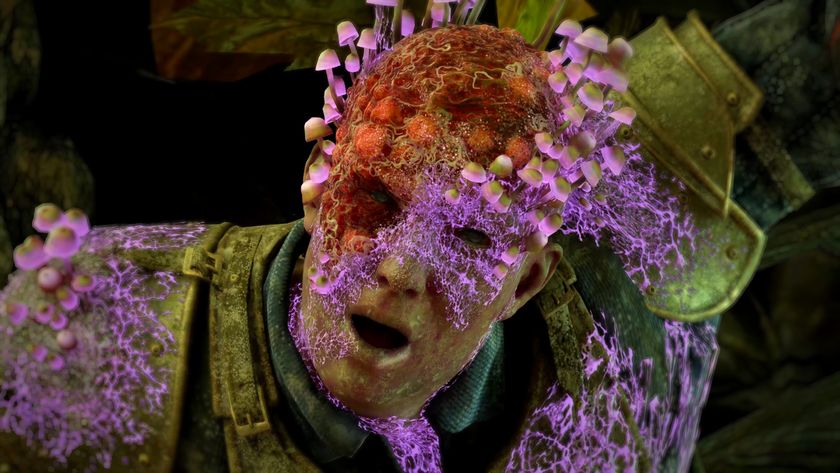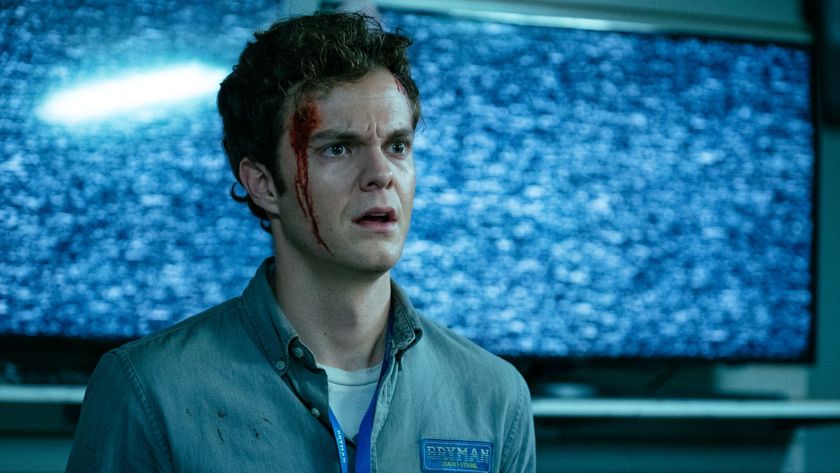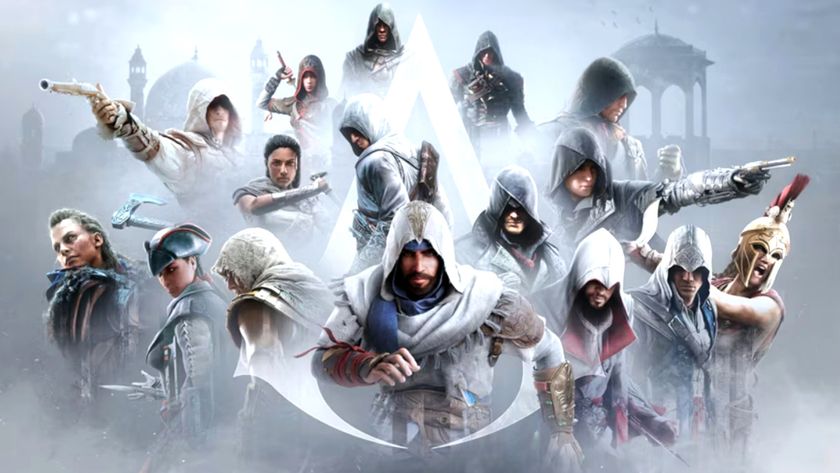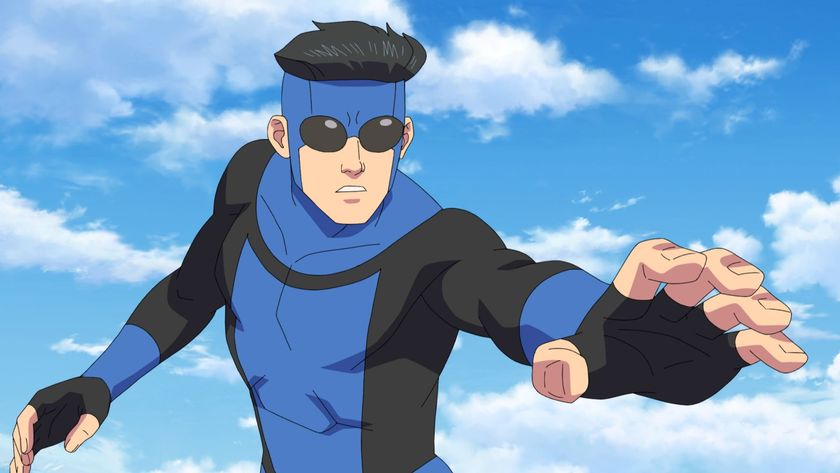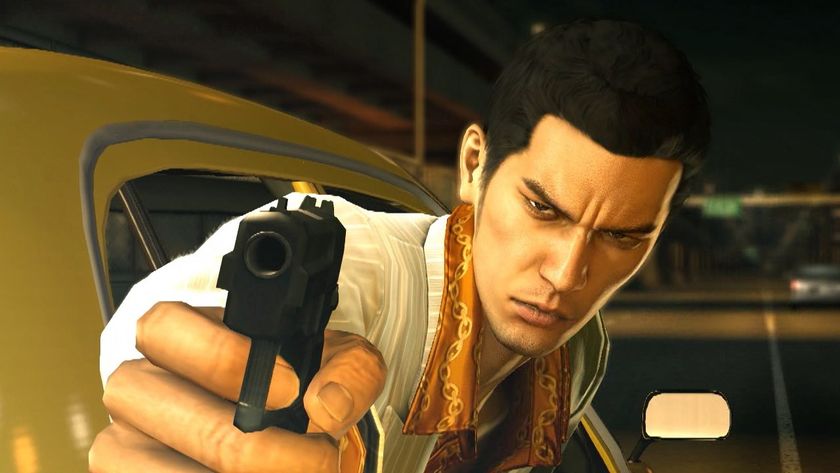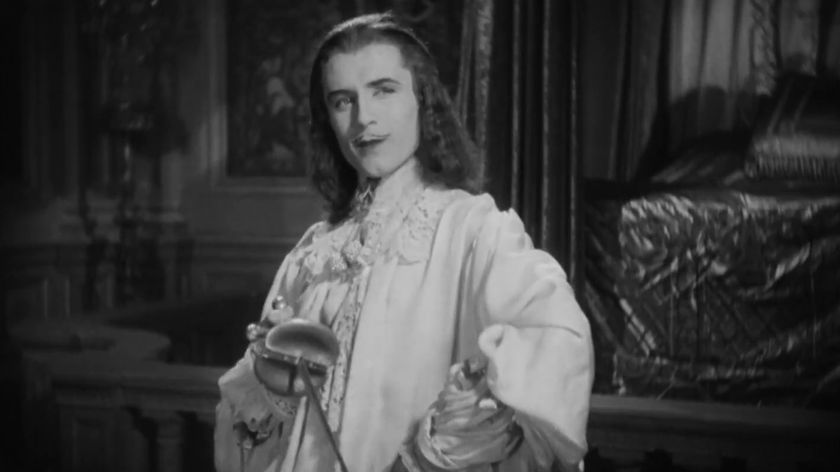Steven Moffat Interview Part Two
None
Let’s talk monsters…
The second part of Nick Setchfield’s exclusive interview with Doctor Who ’s new showrunner, and this time they talk monsters.
SFX : Did you feel compelled to bring the Daleks back?
“You don’t have to bring them back. There’s absolutely no law that says you have to bring back the Daleks. But occasionally, back in the day, when I still looked at the fan stuff on the internet, there’d be people saying, ‘Oh, the Daleks are back every year!’ But for kids that’s ages to wait for a Dalek story. You have to think of the Daleks as almost a regular character. They’re one of the regulars. But they’re brilliant. They’re still the number one Doctor Who monster. They were invented in 1963 and they’re still number one. That says there’s something very magical about them. We haven’t managed to top them. So of course you’re going to bring them back. You can pretend you’re being a grown-up and say, ‘Oh, it’s the Daleks again!’, but secretly your little heart is beating, because it’s the Daleks. We’ve got a great Dalek story. It’s different, and it’s very, very exciting. You’ll absolutely love that one. It’s written by Mark Gatiss. I know Mark extremely well – we’re also working together on Sherlock . It’s an episode that’s early in the run, so you’re still trying to cement the new style, and he’s someone I’m used to working with very, very closely so that was really why I went with Mark. We’re very comfortable working very closely together.”
SFX : Where do you stand on returning characters generally?
“I think there is a danger that you can make the universe very small if you have a handful of characters that always turn up. The absolutely classic Doctor Who is when he walks out of the door and he doesn’t have a clue about anything, and he has to improvise his way through terrible danger. You’ve got that at war with another classic thing that Doctor Who does – he has fantastical enemies who turn up all the time. It’s a constant balance between those two.”
Sign up to the SFX Newsletter
Get sneak previews, exclusive competitions and details of special events each month!
SFX : Are you in a position now where you can reach for your battered old copy of the Doctor Who Monster Book and say right, I’ll bring back them, them and them – or is that a fannish fantasy?
“If I’d taken over Doctor Who in 2005 as opposed to 2010 then I would have been going through the Monster Book thinking, ‘Right, we’ve got to bring them back and him back and her back,’ and all that stuff… I think we’ve done the icons. I think there are good ideas to be mined from the old series, and that’s worth doing because a good idea is a good idea. But I don’t think there are any icons left, any proper ones that people really care about. And I don’t really care, because in a way at the beginning getting the Daleks and the Cybermen and the Master, that’s like the badge of office, when you know that you’re really Doctor Who . The series have kind of merged now – the old and the new, in everyone’s view. It’s interesting that kids call him the Eleventh Doctor, not the Third Doctor. They absolutely know that this is a long, ancient series, and it’s all one show. We don’t need to grab icons from the past. There will come a series where we don’t use anything from the past. That’s quite possible. We’d probably always use the Daleks, because the kids absolutely adore them, and you’re just being a mean old spiteful thing if you don’t… it’s like when they say, ‘And this James Bond film has got no gadgets in it.’ Oh, get lost! We want gadgets and we want Daleks!”
SFX : You’re bringing back the Weeping Angels, of course. What’s new about them this time?
“They have more powers than you thought. And you are not safe just because you can keep your eyes open!”

Nick Setchfield is the Editor-at-Large for SFX Magazine, writing features, reviews, interviews, and more for the monthly issues. However, he is also a freelance journalist and author with Titan Books. His original novels are called The War in the Dark, and The Spider Dance. He's also written a book on James Bond called Mission Statements.
